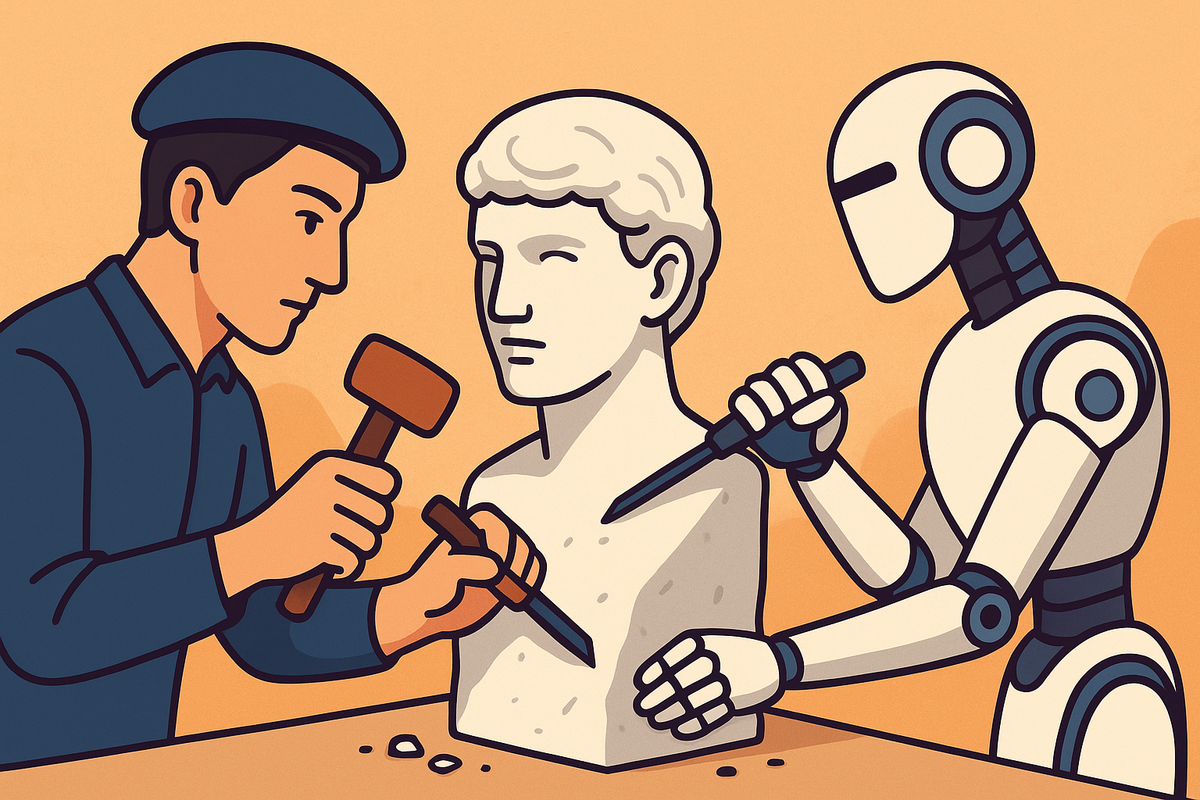Writing with chatbots

I've been writing with AI chatbots like Claude and ChatGPT for a bit , and while they're incredibly good at generating content, there's a fundamental friction in how much it helps.
The Current Problem
How it works today: I ask Claude to write something, it creates a nice artifact document, and then... I'm stuck. Want to change a paragraph? Copy it out, tell Claude what to fix, wait for a rewrite, copy it back. One sentence tweak? Same dance.
It creates this weird loop of "change this, now change that, actually go back to the previous version but keep that one edit." The AI constantly regenerates entire sections when I just want to refine a few words.
What's Missing: True Collaborative Editing
What I really want is to edit the article directly on the spot. Why can't I highlight text, make changes, and have the AI see exactly what I'm doing? Think Google Docs comments, but instead of waiting for human collaborators, the AI is right there with me. I edit a sentence, Claude suggests how to improve flow to the next paragraph. I highlight a weak section, the AI offers alternatives without me explaining what's wrong. The AI would learn my preferences through my actual edits—not just from what I tell it, but from seeing what changes I actually make. Way richer signal than trying to describe my writing style.
What This Enables
Fewer prompts, more flow. Instead of breaking my writing flow to craft the perfect "rewrite this section" prompt, I could just fix things as I go. The AI becomes a writing partner rather than a content generator I manage.
AI learns through action. As Lex's founder noted about their AI integration: "We focus on how the advice impacts users emotionally" but imagine if AI could learn that I consistently change passive voice to active, or always shorten long sentences. That's way richer feedback.
Better preservation. When I ask for a rewrite, sometimes the AI changes parts that were already working. With collaborative editing, good parts stay untouched while we iterate on what needs work.
Version control that helps. The AI remembers all our versions and changes, not just final drafts, but the evolution of ideas. "Remember that version where we tried the conversational tone in paragraph 3? Let's go back to that but keep this structure."
The Future of AI Writing
I want AI to be a writing partner, not assistant. The difference is collaboration versus delegation.
Instead of describing what I want and waiting for delivery, we'd work together in real-time. I make an edit, the AI suggests the next improvement. I restructure a section, the AI helps maintain consistency.
Real-time collaborative editing has been around since 1968, and modern tools like Tiptap are already enabling "real-time collaborative editing" with AI assistance. The technology exists. We just need writing tools to catch up.
The AI becomes smarter about my preferences with every edit, learning not just what I say I want, but what I actually choose when given options. That's the kind of tool that would fundamentally improve the creative process itself—not just speed up content generation.
This connects to a broader theme I've been exploring: how we need better AI feedback mechanisms beyond simple thumbs up/down ratings. When AI can observe our actual editing choices, which words we keep, which we delete, how we restructure, that becomes incredibly rich implicit feedback for improving the collaboration.
As I've written before, we need to move beyond the current model where AI is merely a passive assistant. True AI collaboration isn't just about parallel work—it's about creating genuine partnerships where both human and AI contribute their unique strengths to shared objectives. Real-time collaborative writing is just the beginning.
Anthropic and OpenAi could start by just adding text editors into their respective artifacts & canvases .
Comments ()